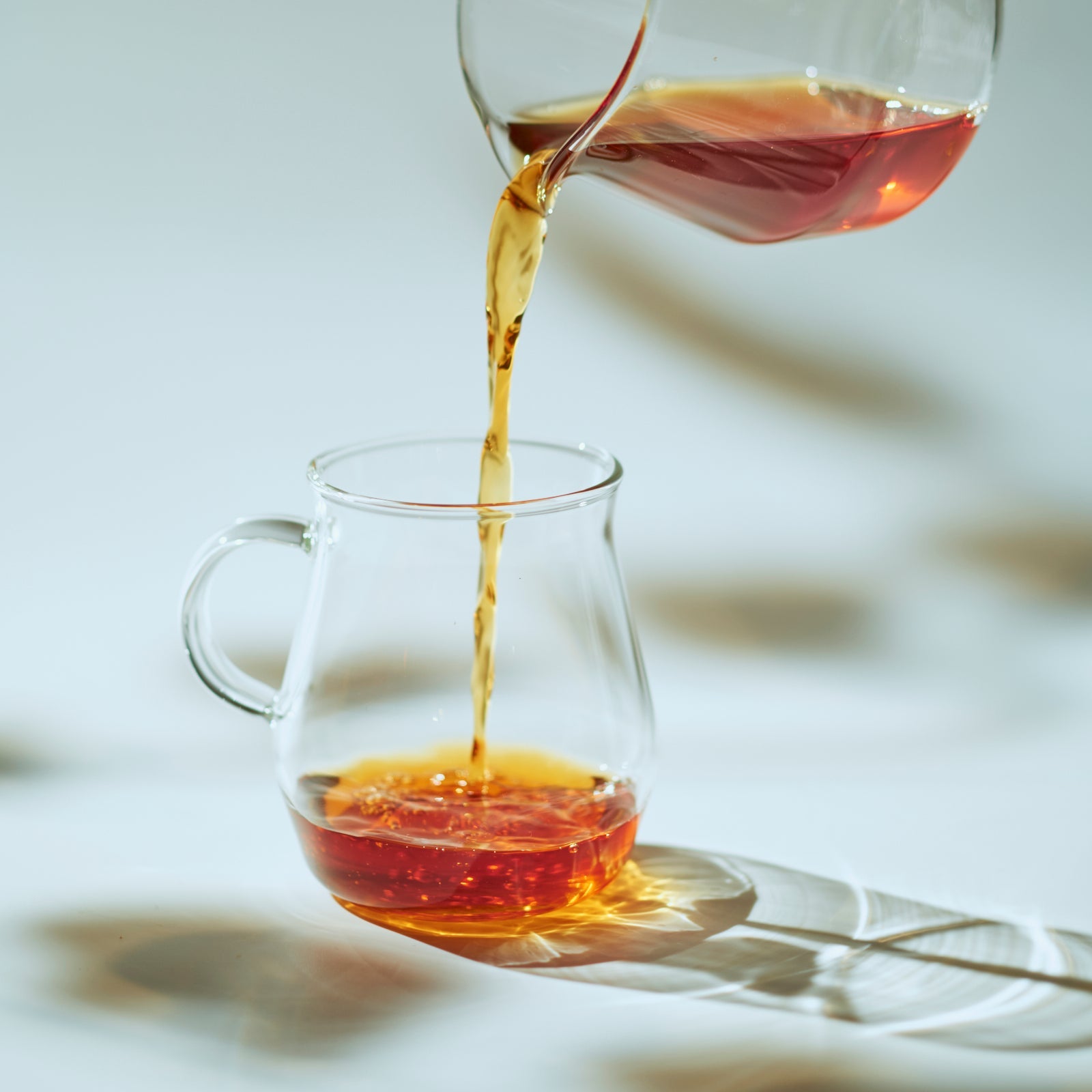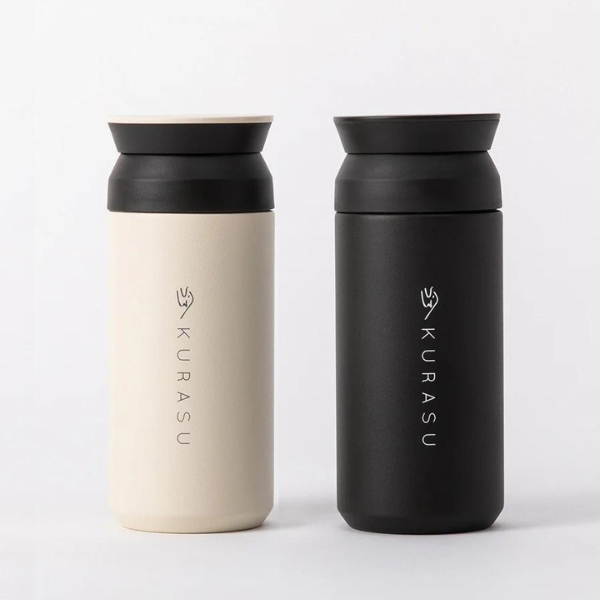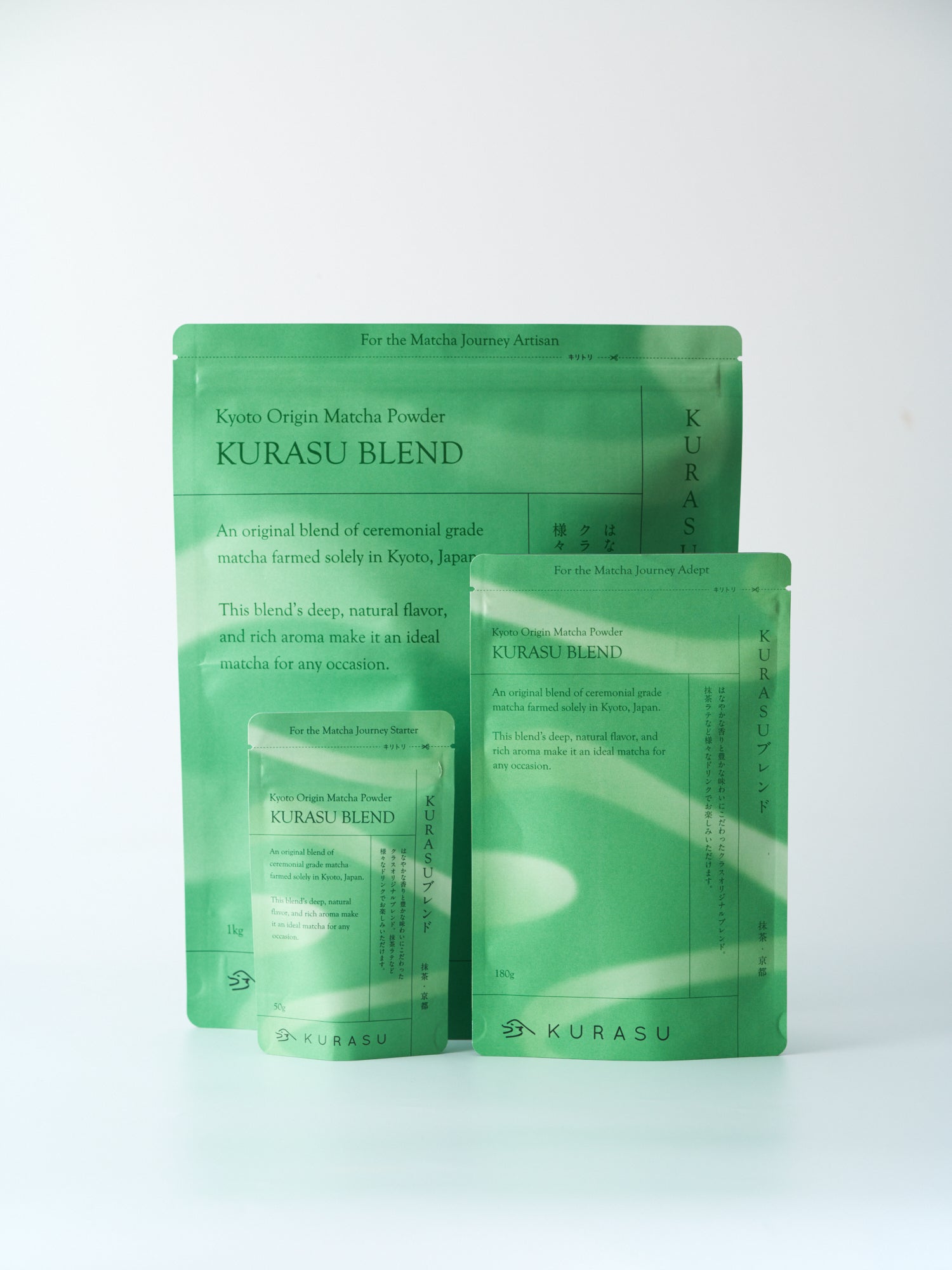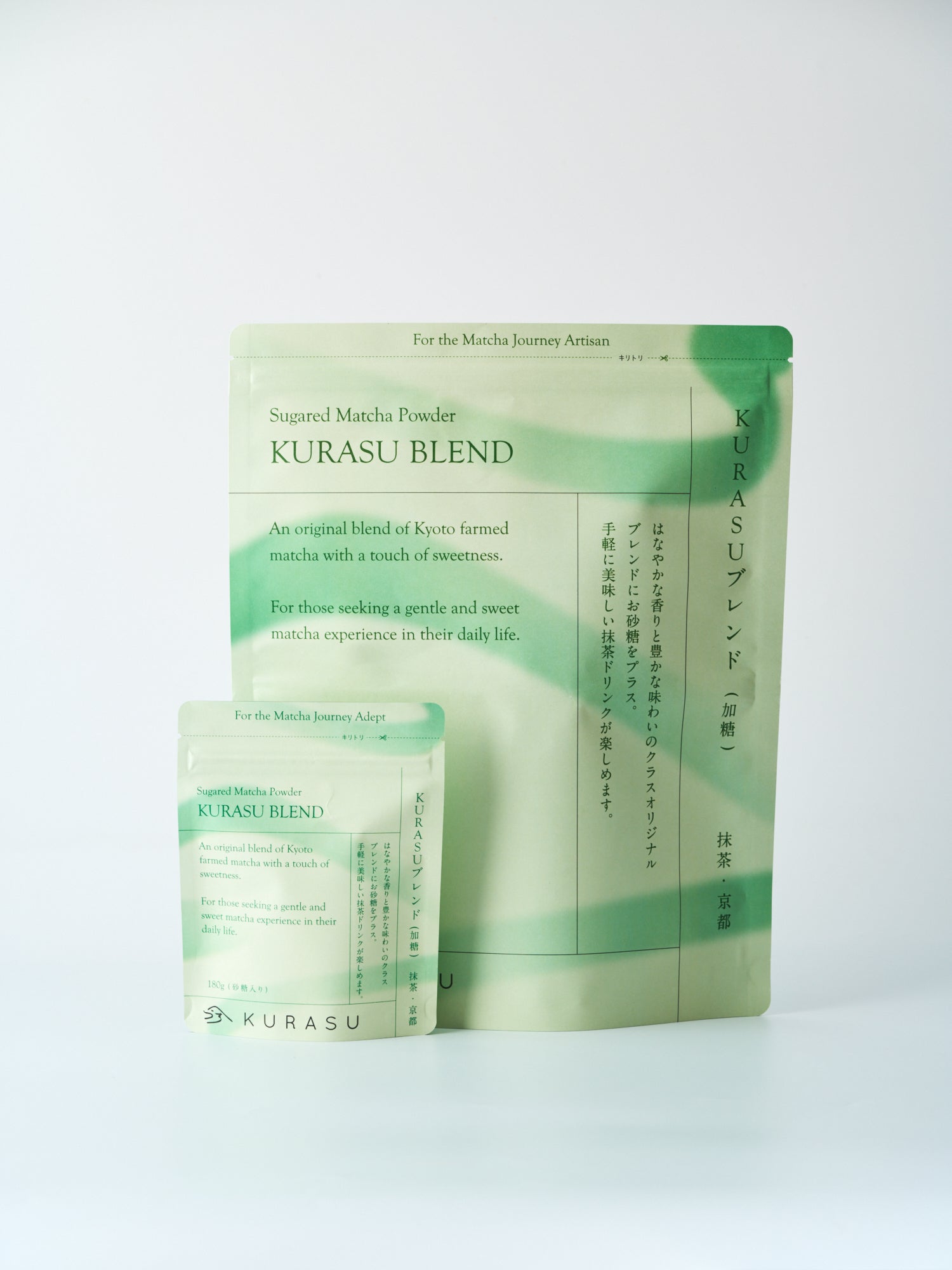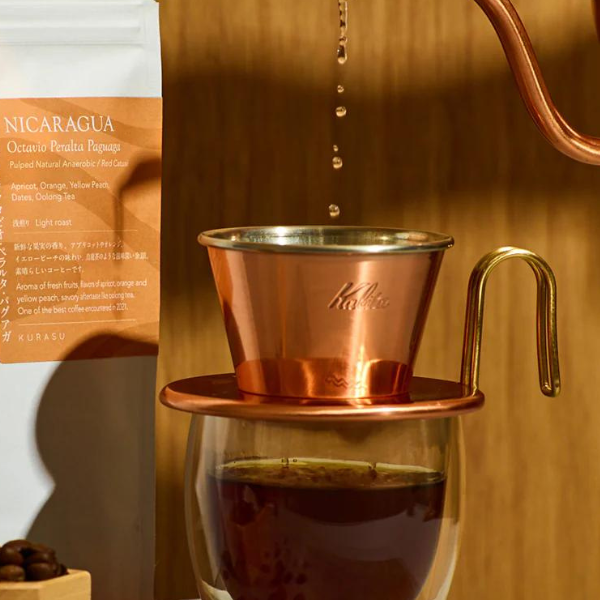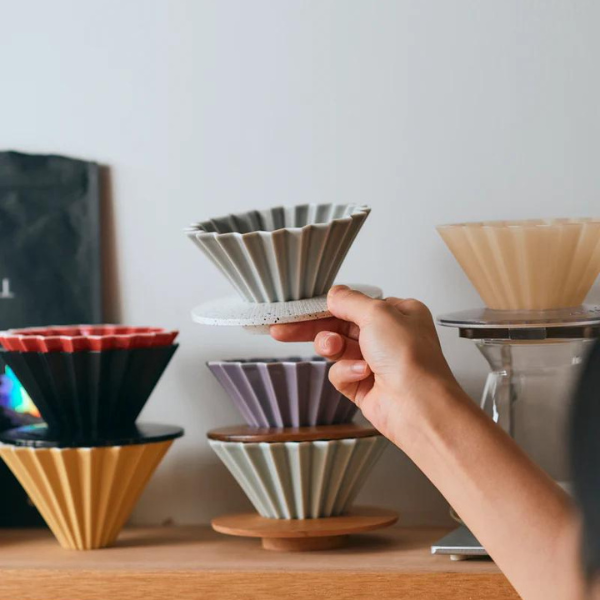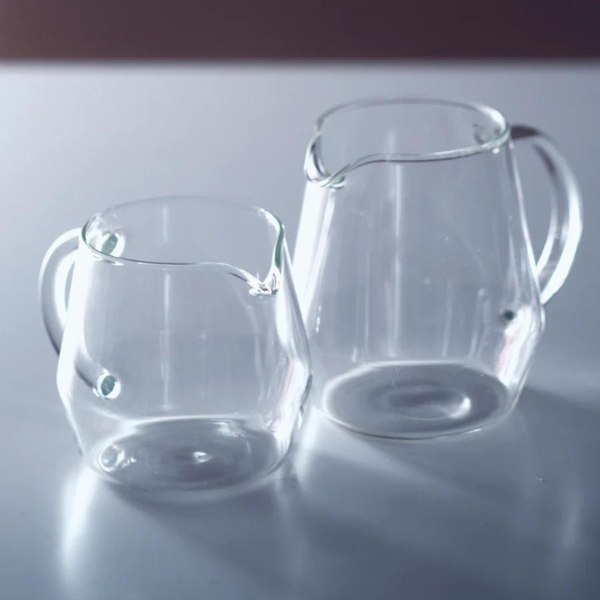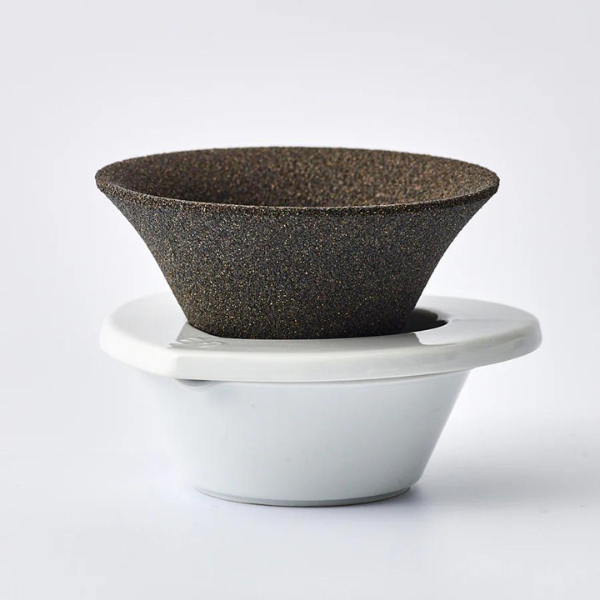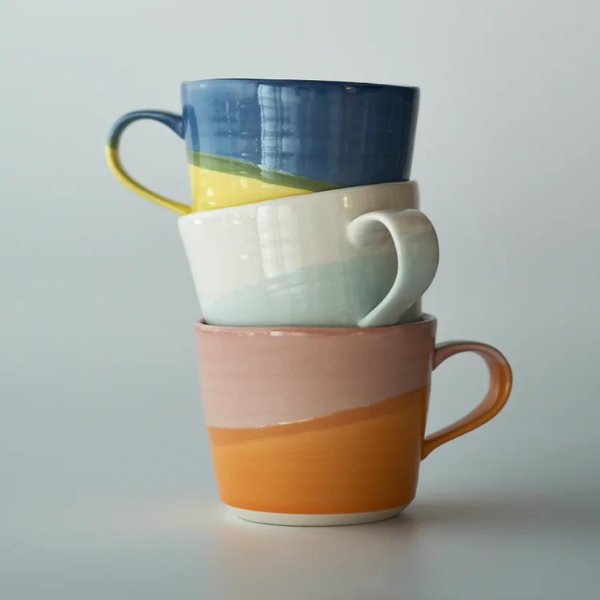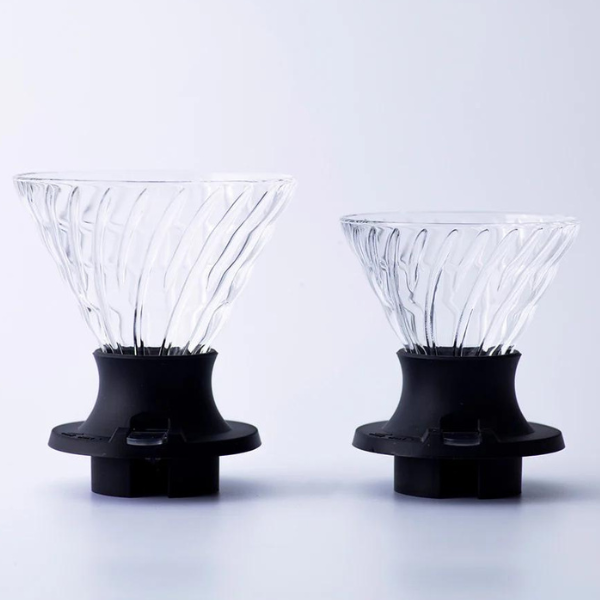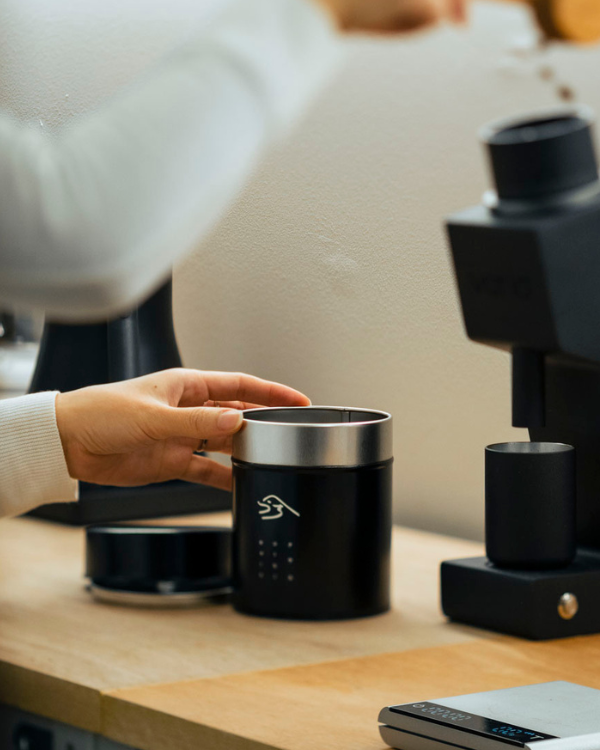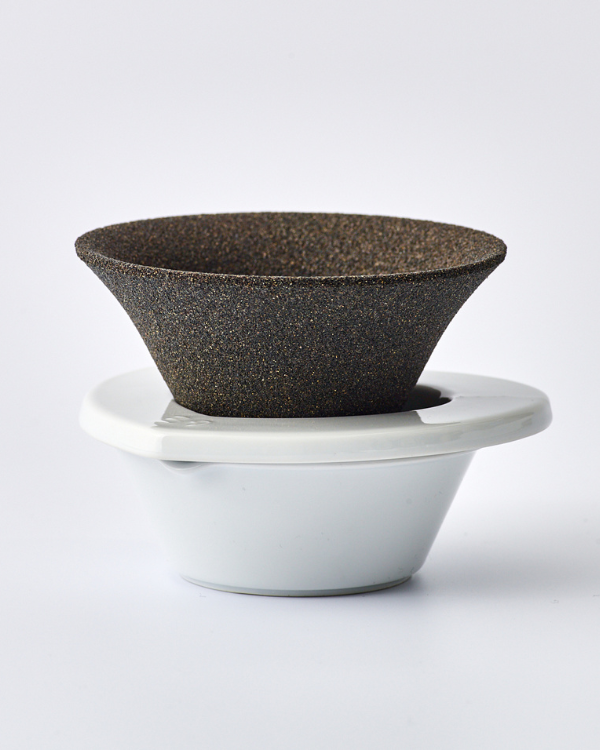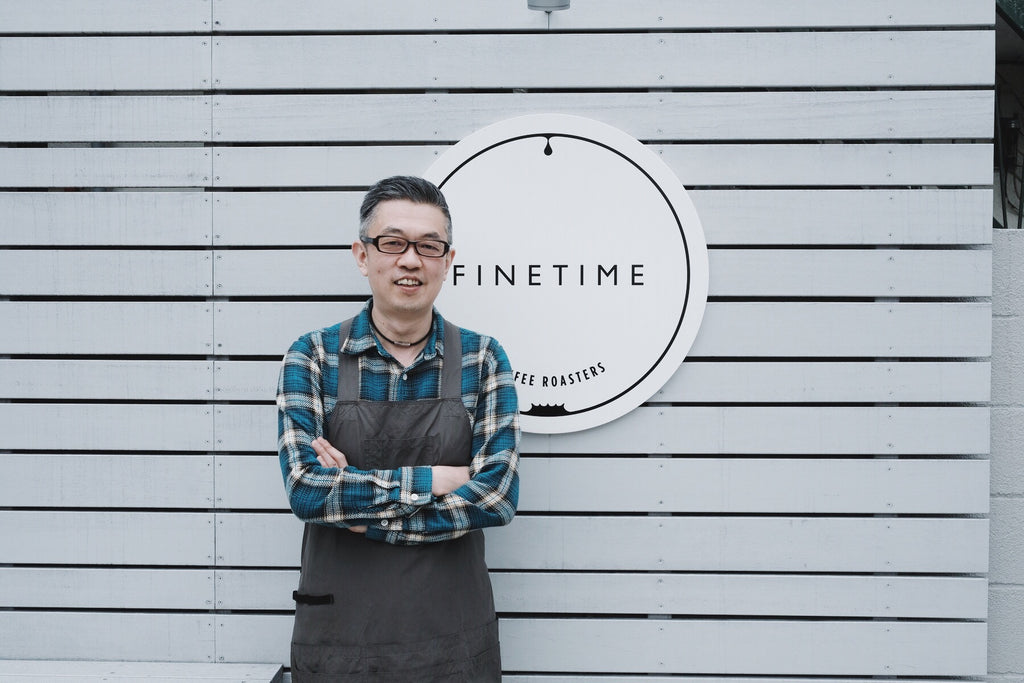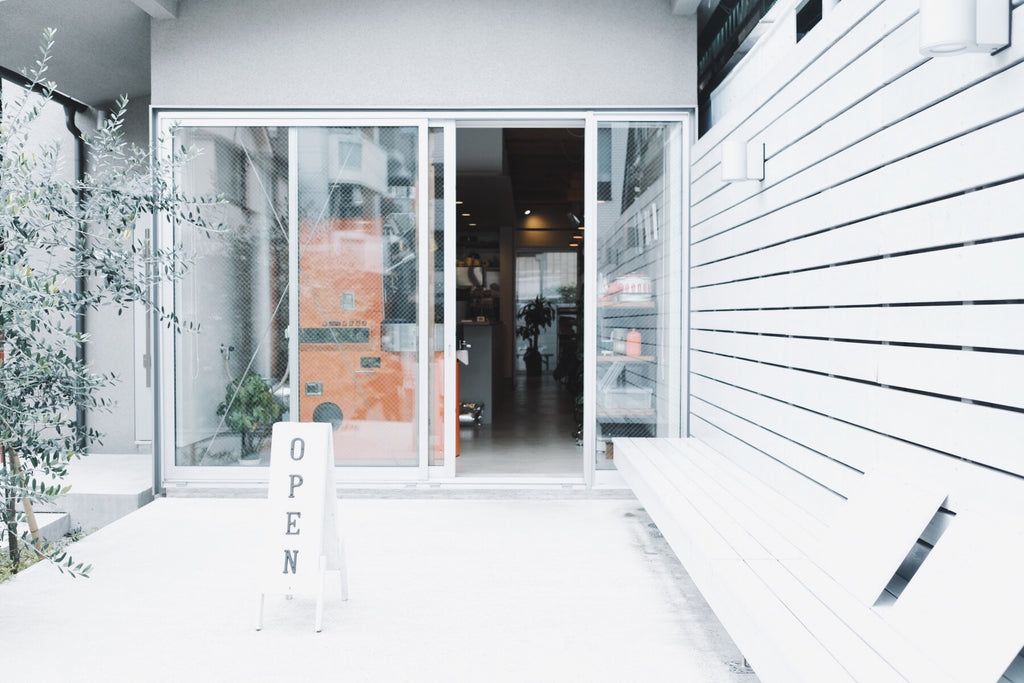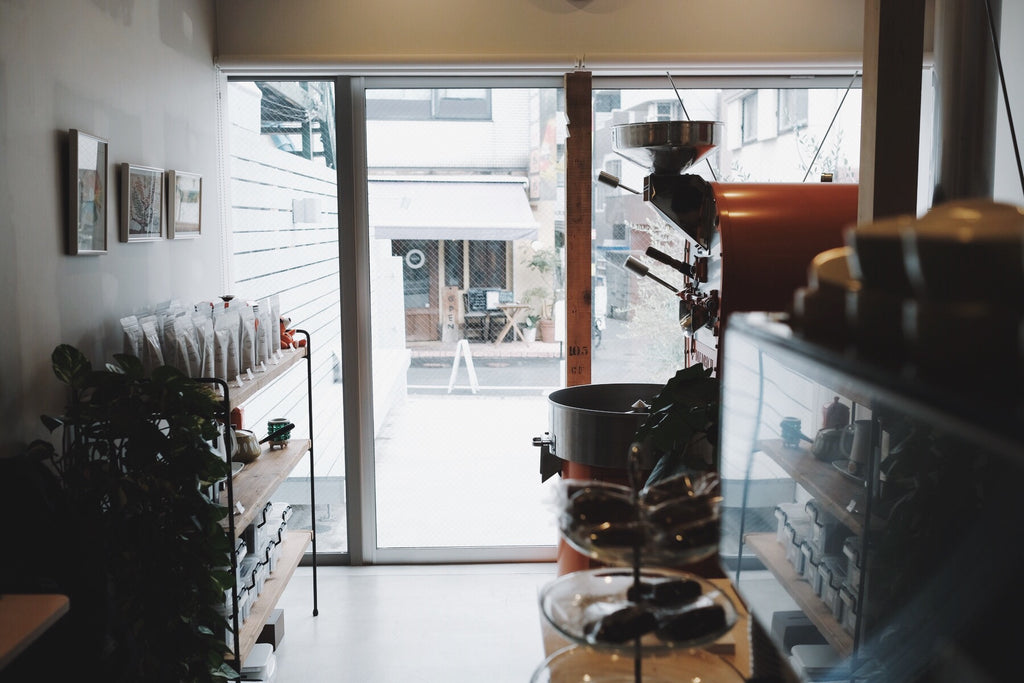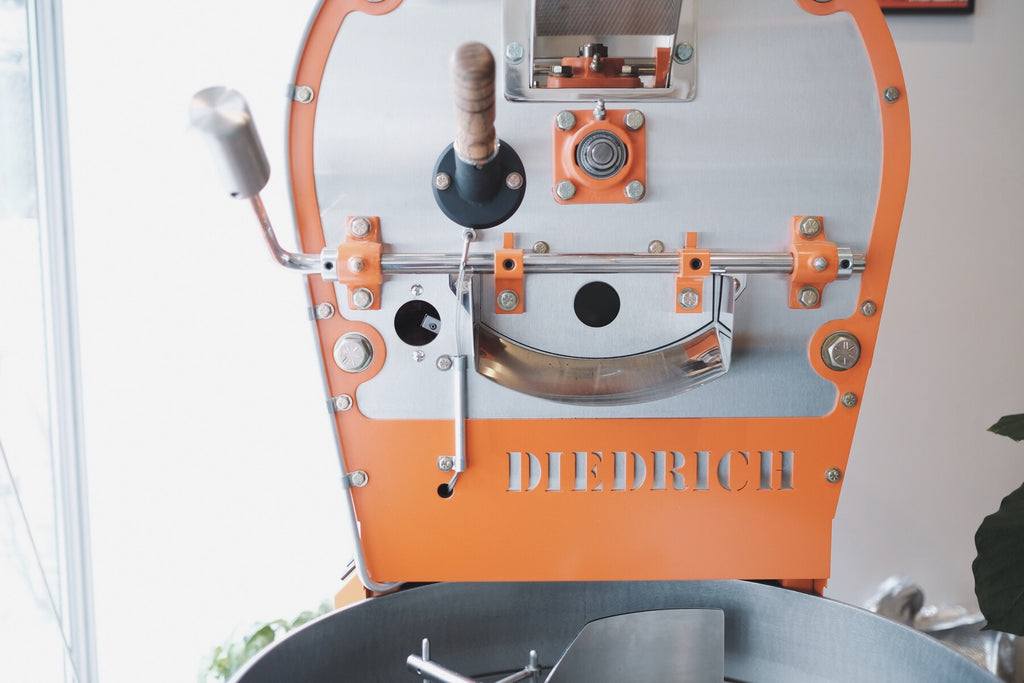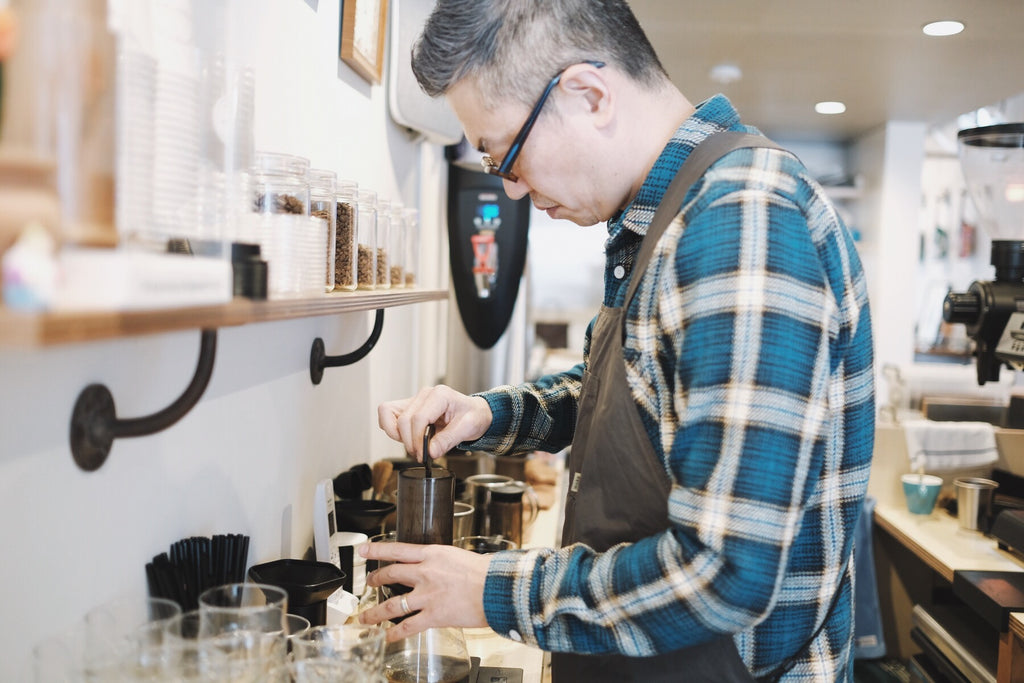The next #kurasucoffee subscription’s featuring roaster is Finetime Coffee Roasters in Kyodo, Tokyo. The owner/roaster, Kondo-san shared his story with us.
- Please tell us about how Finetime Coffee Roasters has started.
I used to work for Saison Group and their logistics and financial department. They sent me to Michigan University to get my MBA, and after that I worked for Morgan Stanley’s finance and operations department for 10 years. Later on, I experienced several big changes in my life, and I decided to start over again when I was in my late-40s.
As I was familiar with management and finances, I decided to start my own business. I love food, and even considered training to be a chef, but I thought that wasn’t really for me, however I still wanted to make something with my own hands and started to research the industry further.
I then found out that the coffee industry is getting very exciting, so I decided to jump into the business of my favourite beverage. I was always interested in cultures surrounding cafes-- the communities it can create, its long history with art and film...all things I love. Creating a space where people meet, enjoy coffee and have a discussion about art and culture seemed to be the perfect idea for me.
Around that time, I met my wife, and we started to look for a place to open a cafe. We were planning to live upstairs, and we wanted something unique--we contacted a company which has a good reputation for renovating old properties, and finally found our ideal one.
Not usually, but she is presently on maternity leave from her job, so she’s helping me bake sweets for the cafe.
- How did you decide what kind of coffee you want to serve? How did you train yourself before opening the cafe?
Coffee has always been my favourite beverage, but I wanted to gain more knowledge and experience with light roasts. So I spent a year and a half to learn everything I could about coffee, and I visited over 200 cafes in Tokyo to make myself familiar with specialty coffee, running a cafe and so on. I also attended every seminar I could find to brush up my skills.
I then came across Fuglen Tokyo and I loved their coffee. So I contacted Nordic Approach and asked if I can attend their cupping session and purchase beans from them. They kindly agreed with that but suggested that I should buy beans through Fuglen Tokyo as small lot can be less cost effective. I contacted Kojima-san of Fuglen Tokyo and that’s when the business started.
I also earned a license as a Q grader during that time, as well as winning the 3rd prize at Japan Aeropress Championship in 2016--I tend to go extreme once I decide to focus. I invested all the time I had to learn.
- Why Kyodo?
I used to visit Kyodo often for the nice restaurants in the area. I was fairly sure that people who visit Kyodo for good food would definitely love good coffee too. I also know the area very well and I like it, so I decided to open the cafe in Kyodo.
- Please tell us about your customers.
My customers are mainly from local area, but there are some coffee lovers and people in the industry who come from afar. I was once featured on one television program aired locally in the Kansai area, and that boosted the amount of orders for beans from Kansai dramatically. After that the programmed aired in several other areas, and every time I got many orders from those areas. There are still some people continuing to buy beans from me, and one time I even received a letter from a senior customer saying “I saw you on TV, and I’m writing this because I can’t use the internet but I would like to purchase beans from you.” That whole experience told me how much effect TV has on people.
I sometimes appear on some magazines featuring renovated properties, so some people find out about me through those magazines as well.
-You are holding many events such as cupping.
Yes, and I would like to plan much more frequently. I have tried having seminars and they went well, so I am planning to have more of them in the future.
About 80% of the customers who visit my cafe for the first time ask for a coffee not too sour but bitter, as dark roast has been the standard in Japan for a long time. However, I don’t sell dark roast. Personally, I can’t drink dark roast anymore as I got into light roast more and more, and if I provide dark roast, people just get it without trying the lighter roasts. So I intentionally focus on lighter roasts and try to introduce them more. I can understand it would be a bit difficult to suddenly change taste, and some who have been drinking dark roast even say “it’s not a coffee” when they try light roast. Through cuppings and seminars, I am hoping to create more chances for people to familiarize themselves with different kinds of roasts in the process discover a new way of loving coffee.
- Please tell us about your coffee.
I purchase Colombian and African beans from Nordic Approach, and other beans like Central American ones from other importers. Basically, I provide light roast only.
I use Aeropress only for filter coffee as that is my strength, and I also provide espresso and latte.
- Did you learn roasting and brewing all by yourself?
I searched for all the places where I can learn. I learned about roasting at Cafetenango--they are specialized with Central American coffee, and their roast is a bit dark but very clean and I love it. I joined their seminar and learned a lot. I also joined seminars hosted by Cafe Bach and Fuji Koki.
I trained myself quite a lot prior to the opening, but some beans gave me a difficult time making my roast stable. I still struggled after the opening, but the beans from Nordic Approach have always produced great results, and that led to me developing a great trust in their quality. One day, I got an exclusive purchase of superb beans from Colombia, and it became very popular and got great publicity.
I went to BARISTA TRAINING LAB TOKYO in Oshiage for espresso training. There, people with experience including WBC judges teach you and mark your espresso just like they do at WBC with WBC standards.
I also bake sweets for the cafe, and I usually provide 3 different kinds. I even learned to bake bread--all of this in an year and a half. I know it’s crazy!
- What kind of roaster do you use? Why did you choose it?
Diedrich 5kg. The fact that Cafetenango and several roasters in Europe I like use the same machine helped my decision, but I really like how it brings the maximum sweetness out of beans with the far-infrared radiation it produces.
- Was Oslo the first place for you to observe the coffee culture outside of Japan?
Yes, I visited San Francisco a while ago but that was before I became a part of the industry, so in that sense, Oslo should be the place I really learned about coffee and cafe culture abroad. Other than that, my friend often gave me tons of coffee beans from his travels around the world so I could try those out.
I used to attend Fuglen Tokyo’s cupping sessions every week and I really liked their coffee, and that is what led me to Oslo. I emailed Nordic Approach and asked if I can attend their cupping in Oslo,explaining to them that I was opening a cafe myself and wanted them to be one of my coffee suppliers. They kindly agreed--I was expecting to join a group cupping session, but when I arrived there with my wife, they were preparing the whole cupping session just for the two of us, with 10 different kinds of beans. Some of the beans were from an old crop, which now that I think about it maybe they were testing us (laugh), but thanks to all the cuppings I attended back in Japan, I was able to give each of the beans reasonable observations, and they agreed to go into business with us.
Oslo also inspired my interest in Aeropress. I think Aeropress is a great method to extract the juiciness of light roast coffee. My experiences through cupping definitely helped me with winning the prize.
- Please tell us about your future vision.
I would like to focus more on selling beans and introduce my roast to more people. Ideally, I would like to own a coffee stand in a busy place, and serve coffee to many people outside of this cafe without any preoccupation. I would like to start wholesale as well.
Most of my customers who buy beans don’t really try coffee at the cafe and sometimes I wonder how they are brewing at home. Introducing a bean’s character and demonstrating the optimal brewing method for each of the beans through seminars and events can be helpful and fun.
I have been hosting a cupping session every week, but other than the regular customers and people in the industry, it’s rare to see people actively getting involved in cupping. Many are definitely interested, but as cupping is not common in Japan yet, it requires a bit more courage to actually join the session. Having a seminar on cupping would be good.
-There seem to be a lot on your plan! Isn’t it difficult to manage everything on your own?
It can be sometimes, but I feel the need to experience everything related to the business as I have no experience in the food industry. But in the future, I am planning to contribute to the next generation by providing young, aspiring baristas with jobs and opportunities. I am looking forward to working with them.
In terms of roasting, I will keep it this way for the time being. If I can establish the coffee stand in an ideal way, I would shift my cafe’s focus solely on roasting and beans sales.
As a baby boy joined the Kondos a month after the opening of the cafe, Kondo-san’s life has become even busier and more fulfilled. His passion, energy and clear vision will surely continue to grow a community around him, and nurture his cafe into something Kyodo, a city of gourmet, can’t miss.

